With over 13 million dogs in the UK and 34% of households now owning a dog (World Animal Foundation 2023) there is an ever-growing demand for a range of canine related services including professional dog trainers, behaviourists, groomers, dog walkers, sitters and kennel managers as well as the rehabilitation of rescue dogs, and specialised training for assistance dogs. The canine behaviour and training sector also has great scope for self-employment and business opportunities. This foundation degree programme aims to develop the knowledge and skills which are necessary to professionally and ethically undertake canine behaviour and training roles. We do this by balancing theoretical study with applied practical experience. As a student on this foundation degree, you will work in the college kennels with a range of dogs from different disciplines, breeds, sizes and temperaments.
You will have the opportunity to undertake training for different purposes, including pet dog training and discipline specific work e.g., agility and hoopers, gaining industry experience with a number of demonstrations from working dog professionals (including Drug, Tobacco and Explosives detection dogs, sheepdogs, Medical Detection Dogs, personal assistance dogs, and many more).
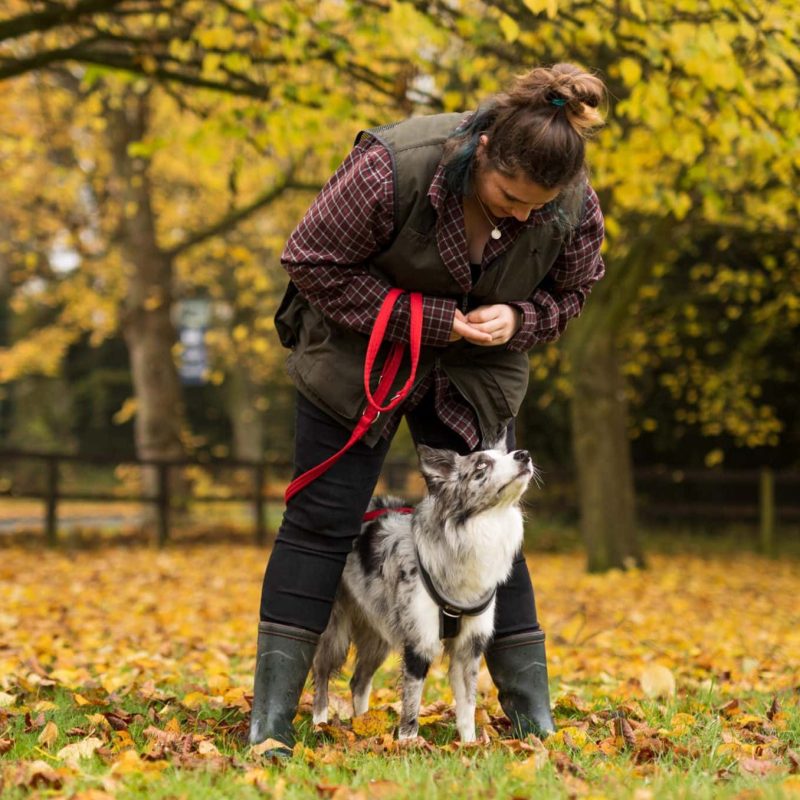
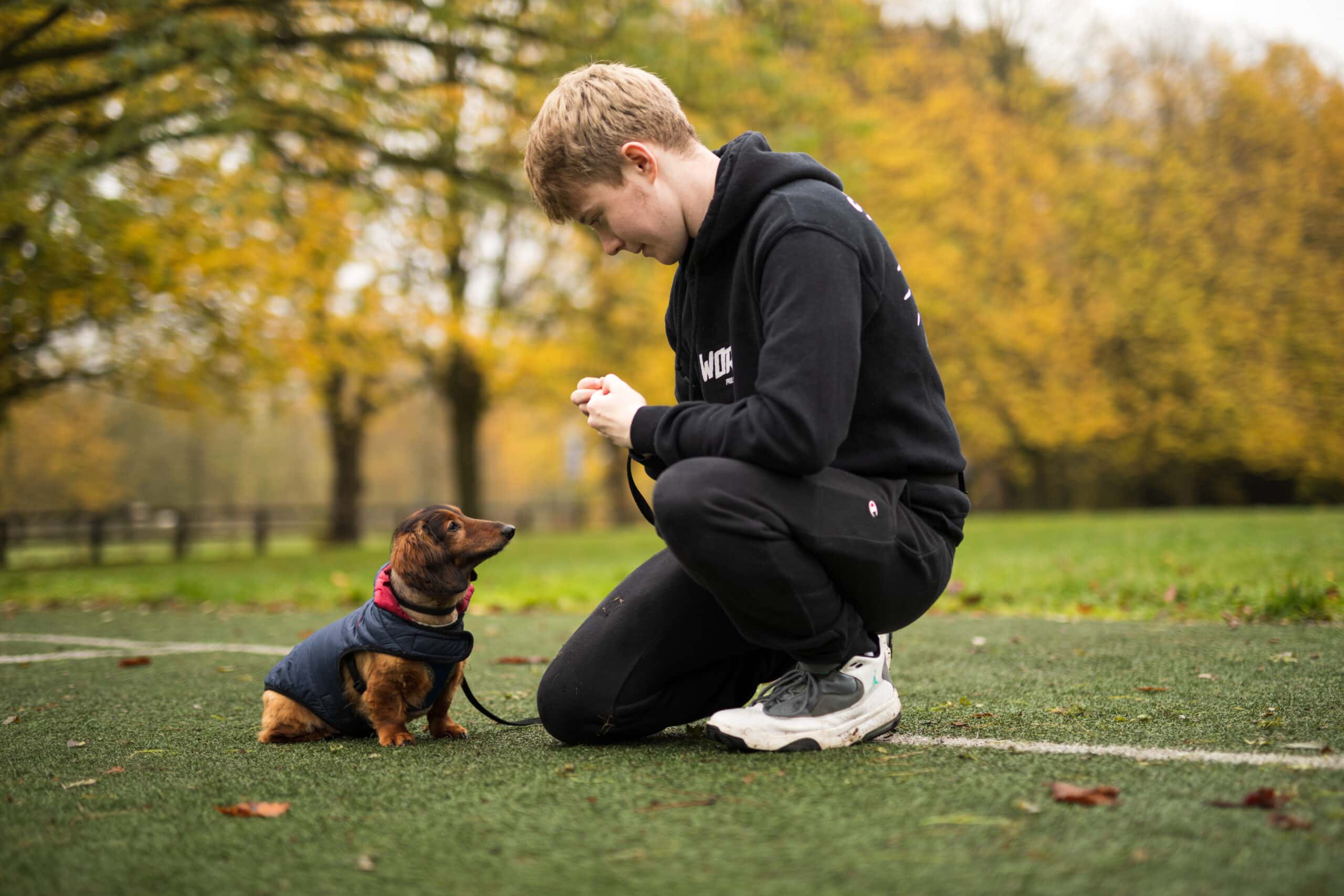
This course is aimed at students who wish to develop a career within the canine industry, but specifically those involving aspects of canine behaviour and training.
As a student studying canine behaviour and training, you will have regular access to the animal-centre facilities at University Centre Reaseheath, which boasts a kennel block, and both indoor and outdoor training arenas. Additionally, students can expect an interactive and personable learning experience that draws upon the expertise of our team of dedicated staff, with whom students can engage in study using our first-class facilities on campus.
There is also the option to complete a further year’s study and top-up to a BSc (Hons) degree upon successful completion of the Foundation Degree.
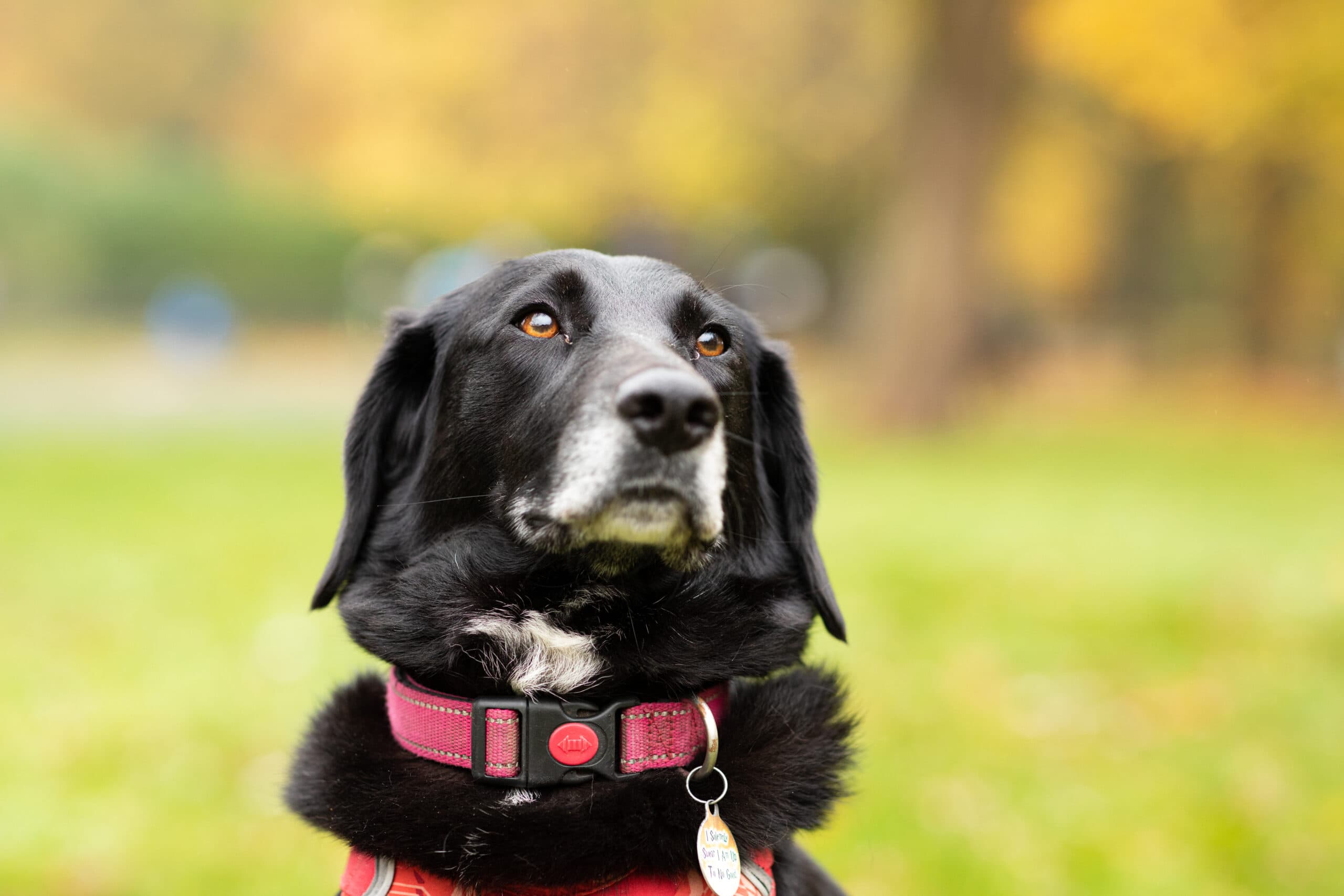
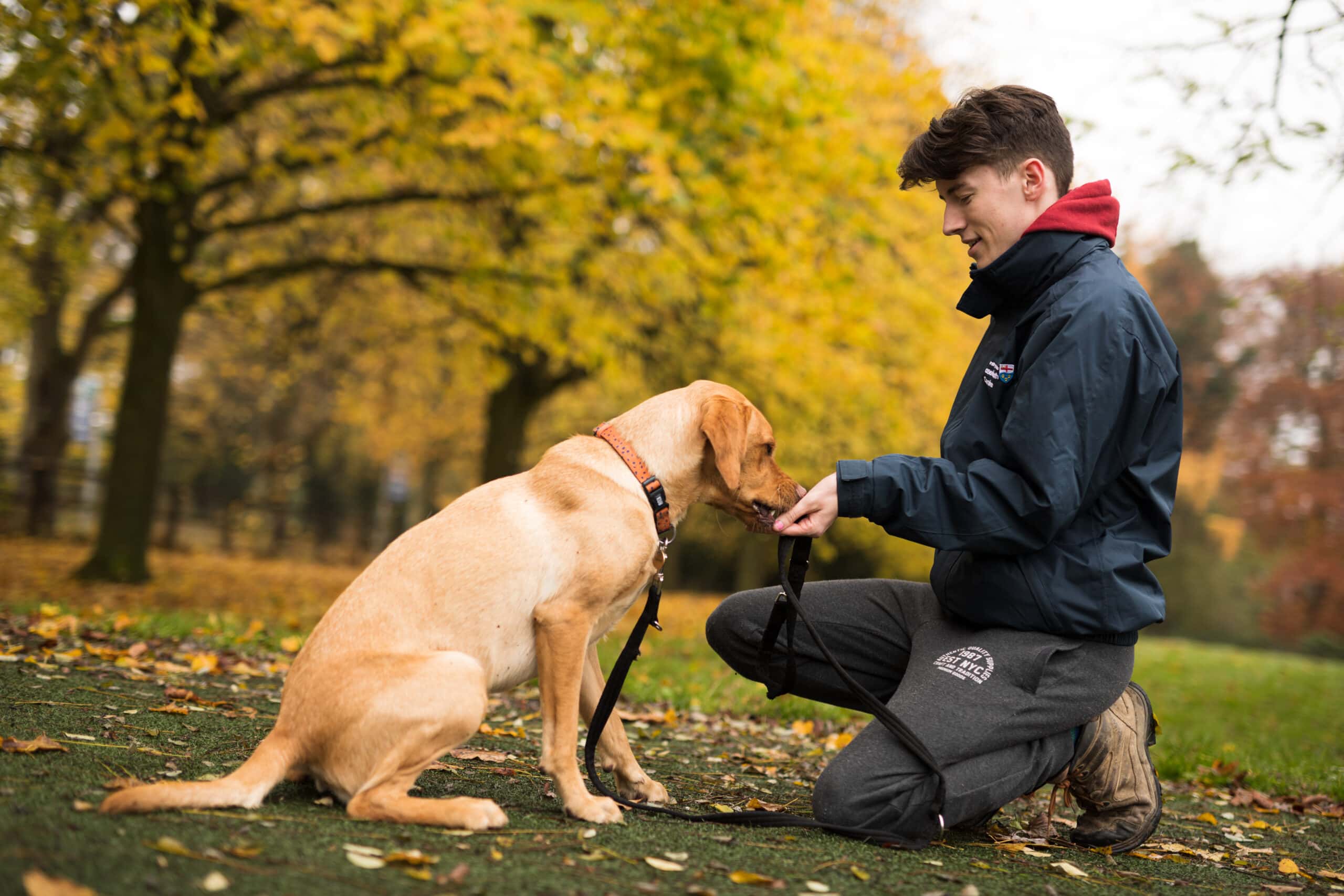
Chris Williams | FdSc Canine Behaviour and Training
“As an Animal Management student at Reaseheath College I got to work with a wide variety of animals in the on-site mini zoo, although I have always had a passion for dogs, so I was excited to be able to specialise in this area by progressing onto studying FdSc Canine Behaviour and Training at UCR.
“University Centre Reaseheath has a great reputation, outstanding facilities, and strong links with industry, and because there are not many other universities that offer degrees in canine behaviour, it really stood out to me as the place to study.
“I am well supported at UCR, and I am gaining lots of skills and experience which I can use in my future career when I come to set up my own business – I would highly recommend it as a great place to study.”
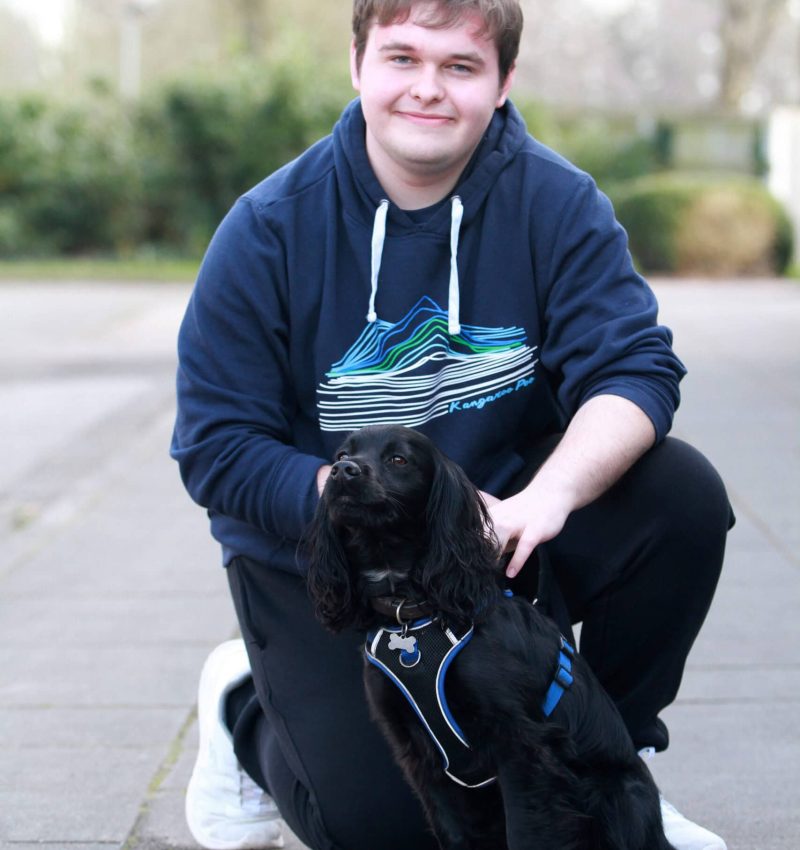
This course is aimed at students who wish to develop a career within the canine industry, but specifically those involving aspects of canine behaviour and training. Students are provided with a combination of academic study with practical learning opportunities to develop a range of academic and professional skills, knowledge and practical competencies associated with working in the canine industry.
Students are expected to study and complete 120 credits per year, which comprises six modules of study per academic level/year. All modules are mandatory study, which reflects the essential underpinning skills and knowledge required to apply across a variety of contexts within the canine industry.
In Year 1 (Level 4), you will develop essential knowledge and skills in canine health, husbandry & welfare, canine anatomy & physiology, canine training & behaviour, and canine legislation in society. A heavy emphasis at Level 4 study will also be placed on the development of academic skills via regular tutoring with an assigned course manager.
Year 2 (Level 5) sees a shift in emphasis towards more industry-specific skills and research-informed knowledge, including canine sensory perception, canine behavioural issues, and canine athlete in industry. You will have the opportunity to develop employability skills through a range of approches, including a work placement option, as part of our Future Focus initiative.
Modules from this programme have been formally recognised by the ABTC Programme Recognition Committee as delivering the academic elements necessary for an individual to achieve the Knowledge and Understanding for the roles of an ABTC Animal Trainer (AT) and Animal Training Instructor (ATI). See below for further information.
A minimum of 64 UCAS points from one of, or a combination of, the qualifications below, ideally in a science-based or relevant subject:
Please note: we accept a maximum of 20 UCAS points from GCE AS Levels and that the Welsh Baccalaureate (core) and A Level General Studies will be recognised in our offer. We will also consider a combination of A Levels and BTECs/OCRs.
Non-standard entry: applicants aged 21 years of age or over without standard academic qualifications may be able to demonstrate considerable vocational experience and transferable skills. Their applications will be viewed on an individual basis to assess suitability. Any applicant who has not received certification for prior learning experiences, but has worked within the discipline, will also be considered. In some instances, applicants may be asked to attend an interview or complete a written assessment to support their application.
Contextualised Admissions: to support access and participation in Higher Education, University Centre Reaseheath operates a contextualised admissions policy, which allows reduced offers to be made to students with certain characteristics and/or social background. Further information can be found in the UCR Contextualised Admissions Policy, available on the website.
International Students: This course is not accepting applications from students requiring sponsorship for a Student visa. If you do not require sponsorship please contact UCRAdmissions@reaseheath.ac.uk for further information.
* Denotes modules as recognised as meeting the Knowledge and Understanding requirements for the Animal Behaviour and Training Council (ABTC) role of Animal Trainer (AT).
*Denotes module(s) that meets the Knowledge and Understanding requirements for the ABTC role of Animal Trainer Instructor (ATI) when combined with those * modules in year 1.
Overall workload
Your overall workload consists of class contact hours, independent learning and assessment activity, plus field trips. Your actual contact hours may depend on which optional modules you select, but the following information gives an indication of how much time you will need to allocate to different activities at each year of the course:
Year 1: 30% of your time is spent in timetabled teaching and learning activity
Teaching, Learning and Assessment: 360 hours
Independent Study: 840 hours
Year 2: 23% of your time is spent in timetabled teaching and learning activity
Teaching, Learning and Assessment: 270 hours
Placement: 100 hours
Independent Study: 830 hours
Class sizes average between 8-40 for modules exclusively delivered on the programme. For those modules offered across several programmes, class size could be as high as 90 individual learners.
Assessment Methods
Assessments are designed to encourage both academic skills and skills valued in the workplace. They include a combination of coursework and examinations. Coursework may take many forms including: essays, reports, data processing, case studies, presentations, academic posters, seminar discussions, interviews, critical reviews, portfolios of evidence and practical competency assessments. The examinations vary, depending on the nature of the module, but may take the form of multiple-choice papers, essays, practical assessments, data handling questions, short answer quizzes, and in-class examinations.
The balance of assessment by examination and assessment by coursework depends to some extent on the optional modules you choose. The approximate percentage of the course assessed by coursework is as follows:
Year 1
75% coursework
25% written exams
Year 2
79% coursework
21% written exams
Feedback
Opportunities for feedback on your progress will be available throughout your course. This will be provided in many formats, including written and verbal. Feedback on graded work is supplied via Turnitin or directly from the module tutor. The majority of assessment submissions are made via Turnitin and feedback for coursework is provided within 20 working days after the submission date. If for unforeseen reasons this is not possible, the reasons will be communicated to the students within 2 weeks and the feedback prioritised within the department.
Written feedback will be supported verbally should the student require clarification. Formative assessment feedback will be provided at the time of completion where possible, with more detailed summative feedback for reports.
Students will be able to access course timetables for the academic year in September.
Timetables are subject to change, but most students can expect to spend 3-4 days per week on campus.
Students are given the opportunity to study a module at level 5 (year 2) entitled Experiential Learning. For the work placement element of this module, students are expected to source their own placement, and complete a minimum of 100 hours of work, which can be accrued either in a block or cumulatively over weekends and holiday periods. When selecting a placement, students should consider the financial implications associated with accommodation, travel/commuting and the possible need for a Disclosure Barring service (DBS) check, as UCR is unable to subsidise such costs.
Tuition Fees
As a student at UCR, you will have two main costs to meet; your tuition fees and living costs.
Our full-time tuition fees for UK and EU students, entering University, can be found on our student finance page. These fees are charged for each academic year of a course and are set by the college annually.
Tuition fees for international students can also be found on our student finance page.
Additional Costs
Students have the opportunity to engage in both domestic and overseas learning opportunities with which to enhance their classroom-based learning experience. These may include opportunities to join field courses within locations such as South Africa, Central America and the UK.
The main emphasis placed on these field courses is the development of professional skills and the application of students’ knowledge in a novel, stimulating, yet challenging environment. Costs associated with the field courses range from £500 – £1000 (UK), and between £2,200 – £2,800 (Central America & South Africa). Please note that precise pricing of all field courses is subject to change, pending availability and recruitment.
Students may also wish to purchase their own personal copies of recommended set-texts to assist them with their studies. A full list of recommended texts is made available prior to enrolment, however, our campus library has sufficient stocks of all major texts to support student learning, and the purchasing of texts is therefore advised, but not compulsory.
Equipment Costs
Students may wish to purchase other suitable outdoor wear in preparation for bad weather (i.e. waterproof/windproof coat and trousers). The above items can be purchased either independently or through the online shop.
Students may also wish to purchase the following training equipment:
Approximately £20 for all training equipment (prices of training equipment are subject to change dependent on retailer).
C06B
Before applying, please visit our Apply Now page for further information
A minimum of 64 UCAS points
September 2026
Full-time: 2 years
September 2023
September 2024
Here you will find useful information about the services and support available at University Centre Reaseheath. Click to expand each item:
University Centre Reaseheath is committed to providing additional financial support to those who need it. To find out about the bursary schemes available visit the additional financial support pages.
For students to get the best out of their time at University Centre Reaseheath, we must both recognise that we owe obligations to each other. These obligations are set out in our UCR Student Contract. Before you accept an offer of a place at University Centre Reaseheath, it is important that you read these contract conditions. If you are going to be living in Halls of Residence, you will also need to read the Student Accommodation Licence Conditions. Both of these contracts can be found here.
Click here to view the University Centre Reaseheath Student Protection Plan.
All UCR students are given the opportunity to apply for residential accommodation. First year students are guaranteed accommodation and this offer is made to all applicants who live more than a reasonable daily travelling distance from Reaseheath (providing you have applied before the UCAS equal considerations deadline. For full details on our halls of residence visit our accommodation page.
We have a team of dedicated professionals on hand to offer you support. These include our Student Services Team, Inclusive Learning Team, Library and Learning Resources Team and the Reaseheath Careers Service. You can find more information on the support provided at Reaseheath on our support page.
University Centre Reaseheath is proud to welcome international students. For more information, please visit our international students page.